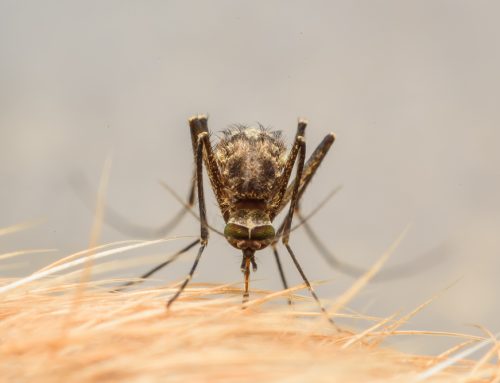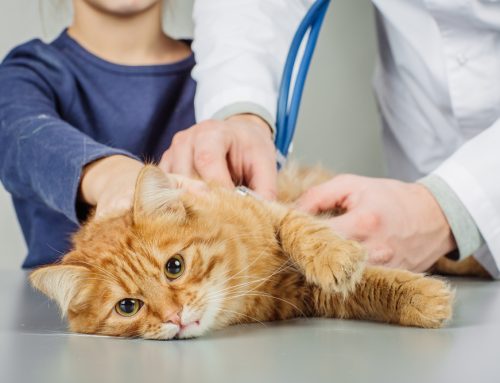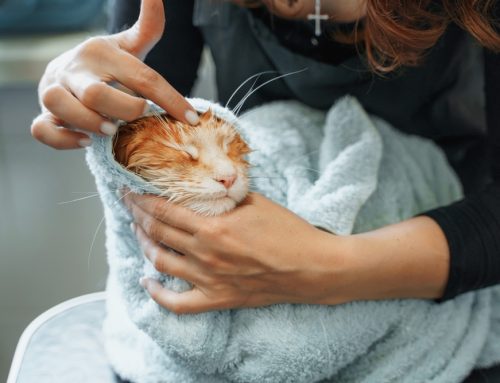Heartworm disease is a constant threat to pets in the southern states, because of our hot, humid weather. In fact, the Companion Animal Parasite Council reported more than 8,000 heartworm cases in Tennessee last year alone. We know you want to do everything possible to keep your furry companion safe and healthy, so our Lebanon Animal Hospital team is here to help you and your pet. We share eight facts about heartworm disease you may not know.
#1: Heartworms are transmitted by mosquitoes
When you think about worms, you likely envision intestinal worms that your pet picks up from another animal or the environment. Heartworms are large, spaghetti-like worms, but that’s where their similarity to intestinal worms ends. Heartworms are transmitted when a mosquito picks up larval worms from an infected animal, and then passes them on when they bite another animal. The larval worms migrate to the animal’s heart and lungs while undergoing a lengthy six- to seven-month maturation period.
#2: Heartworm disease is life-threatening
The worms’ presence causes several significant problems for infected pets. As a foreign invader, the worms trigger an inflammatory reaction that can lead to long-term lung damage and scarring, whether or not the worms are killed. Additionally, worms accumulate in the heart and lung vessels as they multiply, obstructing blood flow. Eventually, congestive heart failure develops, and will progress to death without treatment.
#3: Heartworm infection affects cats differently
Many cat owners assume that heartworm disease is limited to dogs, but cats can also be infected. However, the worms cannot reproduce inside cats, because dogs are the preferred heartworm host. Cats respond differently to infection, and only a few worms can incite severe inflammation that causes an asthma-like condition known as heartworm-associated respiratory disease (HARD). Infected cats may display signs such as coughing, wheezing, or difficulty breathing, or may be asymptomatic. Unfortunately, the inflammatory response can also cause sudden death in cats.
#4: Heartworm infection is often silent until significant disease is present
Since larval heartworms take upward of six months to mature, heartworms may not begin to accumulate in the body and cause signs for a year or more. We recommend annual heartworm testing to ensure your pet is parasite-free, and not harboring a silent, developing infection. Pets who are on year-round prevention also should be tested, because only one missed dose or spat-out pill can leave them susceptible to infection.
#5: Heartworm disease treatment is hard on dogs
Heartworm disease treatment is lengthy, costly, and difficult for dogs to endure. An arsenic compound is injected deep into a dog’s lumbar muscles to kill the adult worms, while other medications manage inflammation and kill bacteria associated with the worms. Most dogs require several treatments spaced 30 days apart, and they must undergo strict exercise restriction throughout the treatment period. Dying worms are broken down and resorbed by the dog’s body, and can become lodged in the lung vessels during exercise, causing sudden death.
#6: No medication exists to treat heartworm disease in cats

No medication is approved to kill adult heartworms in cats, and treatment is aimed at reducing worm-associated inflammation and managing clinical signs. Unfortunately, adult worms can take several years before they die on their own, and inflammation and scarring may become permanent. The lack of treatment makes heartworm prevention critically important in cats.
#7: You can easily prevent heartworm disease in your pet
This is a situation where an ounce of prevention is truly worth a pound of cure. Heartworm prevention may add to your annual pet care budget, but treatment is much more costly—in terms of money and your pet’s health. Preventing heartworm disease is as easy as administering a monthly chewable “treat” or topical preventive to your pet. If you are concerned about missing a dose, an annual injection can be administered with your pet’s vaccine boosters. Ask our team which preventive type is best for your pet’s lifestyle and situation.
#8: All pets should receive year-round heartworm prevention
While Tennessee winters can be fairly chilly, the weather rarely becomes cold enough to kill off the mosquito population. Mosquitoes lie dormant, waiting for sporadic warm days, and can become active any time the temperature rises above 50 degrees. For this reason, year-round heartworm prevention is necessary to fully protect your pet.
As the weather warms, heartworm-carrying mosquitoes will become prevalent, and seek out your pet. Call us to schedule your pet’s annual heartworm test, or to stock up on heartworm prevention products.








Leave A Comment